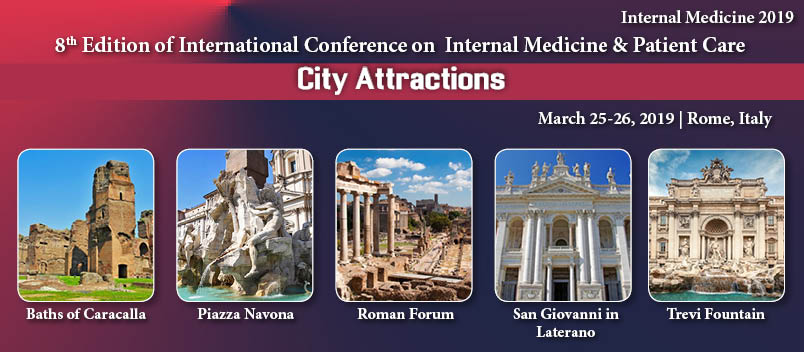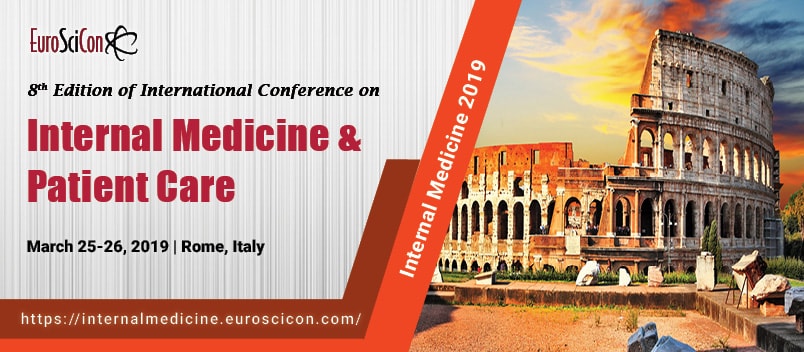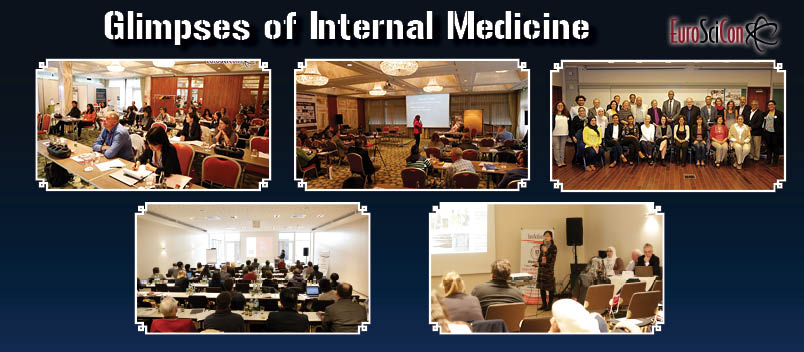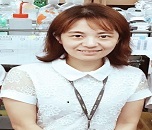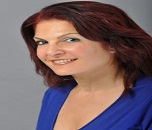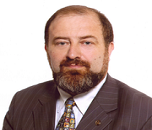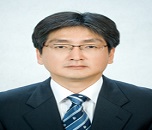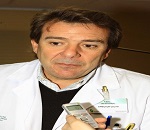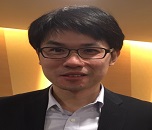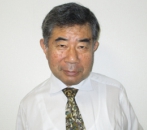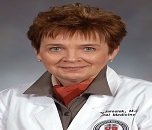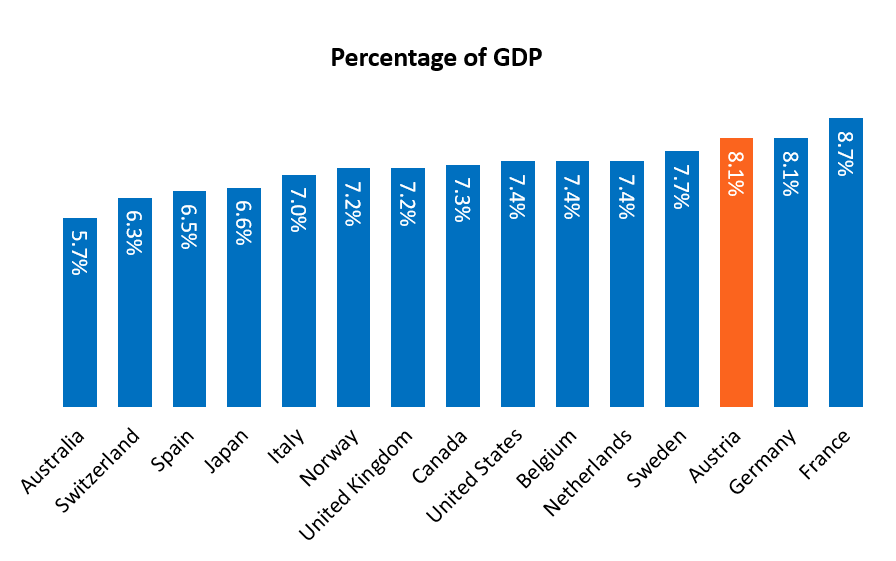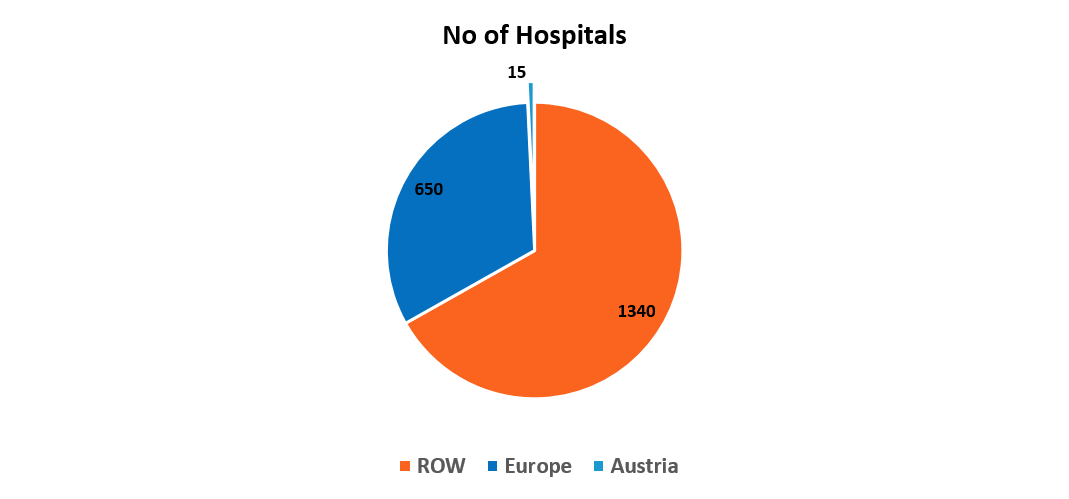Internal Medicine 2019
Internal Medicine 2019 Info
The EuroSciCon is holding its 8th European Congress on Internal Medicine & Patient Care (Internal Medicine 2019) from March 25-26, 2019, Rome, Italy. The theme of this meeting is "Revealing current Research and Advancements in Internal Medicine and Patient Care" which will provide an international platform to discuss the present and future challenges in primary care, patient care, continuing education and expertise meeting. Internal Medicine conferences aim to promote continuous medical education and encourage a nourishing exchange of facts and ideas in how to deal with the disorders involving patients. Great scientific faculty from USA, Europe as well as other continents expect a highly interesting scientific as wel as representative event.
Internal Medicine Conference Highlights & Benefits:
Italy Visa Information

Last year, we enticed you to travel to the far end of the globe to attend our 7th Edition of International Conference on Internal Medicine and Patient Care Conference in Vienna, Austria. This year, I am delighted to invite you to journey back to the old world and join us at 8th Edition of International Conference on Internal Medicine and Patient Care Conference in Rome, beautiful capital of Italy.
Internal Medicine 2019 will be a great conference for sharing new ideas of academic and Medical research as well as to experience the unique environment Rome, Italy.
Against the unique background of history and culture, I believe our Conference will also exceed your expectations. We warmly welcome to all our participants at 8th Edition of International Conference on Internal Medicine and Patient Care on March 25-26, 2019 happening in Rome, Italy.
Having queries regarding the Visa..?
You can write your queries to us through E-mail:
internalmedicine@eurosciconconferences.com internalmedicine@medicaleuroscicon.org
You can directly reach us at 2033182512 or you can also send your queries in Whatsapp at +44238214671
CITY ATTRACTIONS:
WHO should attend Internal Medicine-2019:
Internal medicine-2019 welcomes experts from both academia and industries.
Experts such as Deans/Chairs, Vice Deans & Vice Presidents of Medical Institutions and Hospitals working in the field of Internal Medicine and related discipline, but not limited to:
- Emergency Medicine
- Intensive Care Medicine
- Adult Diseases
- Primary Care
- Geriatrics
- Patient Care
- Telemedicine
- Healthcare
- Oncology
- Genomic Medicine
Professors and students from academia who are in the field of Medical and clinical research.
Physicians, Business delegates, Directors / Managers & Business Intelligence Experts, Departmental Managers.
Scope of Intenal Medicine 2019:
It estimated that, most of the countries have an absolute shortage of 2.3 million physicians and nurses. These shortages of primary health care professionals, suggest that many countries have insufficient numbers of health professionals to deliver essential health interventions. Shortage is defined as having a projected supply of primary physicians that meets less than 80% of the forecasted primary care demand at estimated means.
A Primary care physician is our main health care provider in non-emergency situations. Doctors, who have completed a residency in internal medicine, are board-certified, in primary care specialty. The scope of their practice includes the care of all ages for different medical problems. They provide preventive care and teach healthy lifestyle choices. They identify and treat common medical conditions, and helps the patients in avoiding many non-communicable diseases such as heart disease, stroke, cancer, chronic respiratory diseases and diabetes, which are the leading cause of mortality in the world.
Scientific Sessions & Tracks
Illnesses that affect the adults are recognized by internist during diagnosis and treatment, prevention of general or chronic disease conditions cover under internal medicine and patient care. All the general, rare diseases, severe chronic illnesses are covered under this session.
Track 1: Internal Medicine & Patient Care:
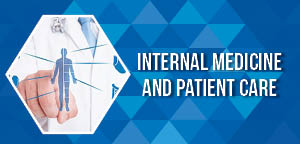
Internal medicine is the medicinal characteristic dealing with the prevention, detections and treatment of adult diseases. Physicians specializing in internal medicine are called internists, or in Commonwealth nations. Internists are experienced in the management of patients who have multi-system disease processes. Internal medicine patients are often seriously diseased or require complex examination; internists do much of their work in hospitals. Internists often have subspecialty interests in disorder affecting particular organs or organ systems. Patient care is defined as the management of hospital facilities, assistance and staff as per the therapeutic and nursing needs of the patient. Internists care for confined and ambulatory patients and may play an extensive aspect in teaching and research.
- Importance of Internal Medicine
- Application of Internal Medicine
- International Internal Medicine Education
- Teaching Strategies in Internal Medicine Education
- Internal Medicine Education
Internal Medicine | Medical Research | Internist | Radiation Treatment | Resource for Clinicians
Track 2: Primary Care:
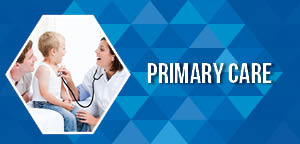
Primary care is the routine healthcare given by a health care server. Typically this provider acts as the first contact and leading point of advancing care for patients within a healthcare system and organizes other specialist care that the patient may need. Patients generally receive primary care from specialist such as a primary care physician, an adult-gerontology nurse practitioner, Pediatric nurse practitioner and family nurse practitioner or a physician assistant. Depending on the nature of the health condition, patients may then be referred for secondary or tertiary care.
- Innovations & Reforms in primary care Management
- Human Resource Management
- Internal Medicine Study
- Professional Career Development of Internal Medicine
- Health Policy Study
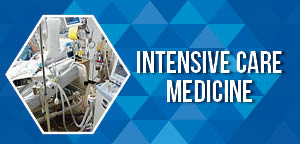
Intensive care medicine is a branch of medicine board with the diagnosis and administration of life-threatening disease cases requiring organ support and invasive auditing. Patients requiring intensive care may compel support for instability, acute renal failure, respiratory compromise, lethal cardiac arrhythmias or the increasing effects of multiple organ failure, more frequently referred to now as multiple organ dysfunction syndrome. They may also be introduced for invasive auditing, such like the crucial hours after major surgery when allow too unstable to transfer to a less intensively auditor unit. Intensive care is usually only offered to those whose condition is potentially reversible and who have a good chance of surviving with intensive care support. A prime requirement for admission to an intensive care unit (ICU) is that the underlying case can be defeated. Critical care medicine is a relatively new but increasingly important medical specialty. Physicians with training in critical care medicine are referred to as intensivists.
- Recent Innovations in Intensive Care Medicine
- Innovations in Patient Care
- Medical Assistance
- Patient Evaluation
- Critical Care Nursing
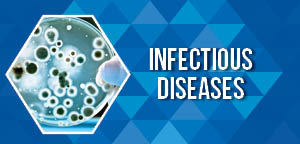
Infectious diseases are disorder caused by micro-organisms such as viruses, bacteria, parasites, and fungi, these diseases can be spread, directly or indirectly, from one person to another. They're normally harmless or even helpful, but under certain case, some organisms may source of disease. Infectious disease results from the coaction between those few microorganisms and the defences of the hosts they infect. However a host's immune system can also cause harm to the host itself in an attempt to control the infection.
- Infectious Diseases clinic
- Infectious Diseases center
- Infectious Diseases CME
- Infectious Diseases conferences 2019
- Infectious Diseases consultants
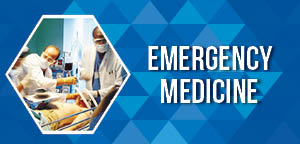
Emergency medicine is the medical specialty involving care for identical and unscheduled patient’s volunteers with injuries requiring immediate medical treatment. Emergency physicians are responsible for beginning examinations and interventions to investigate and treat patients in the acute phase including initial rejuvenation and stabilization, coordinating care with doctors from other specialities, and making opinion regarding a patient's need for hospital admission, examination and discharge. Emergency physicians generally practice in hospital emergency departments, pre-hospital settings through emergency medical assistance and intensive care units.
Emergency Medicine Conferences | Emergency Medicine Meetings | Emergency Medicine Expo | Emergency Medicine Events | Emergency Medicine Programs
Track 6: Adult Disease:
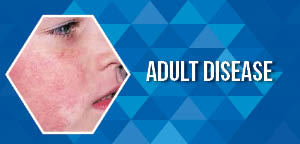
An adult disease being that canappear, but are not usually studied in the pediatric and child population: Schatzki's ring, Helicobacter pylori, cricopharyngeal achalasia, pancreatic carcinoma, achalasia, nasopharyngeal carcinoma, adenocarcinoma of the colon, malignant melanoma, thyroid carcinoma, renal cell carcinoma, leiomyosarcoma of the ovary and sarcoidosis, hydatidiform mole. Radiologists explaining pediatric or child imaging should observe these entities and perform a proper diagnostic workup.
Adult Disease Conferences | Innovative Adult Disease Medicine Meetings | Adult Disease Expo | Advanced Adult Disease Care Medicine Events | Internal Medicine Residency Programs
Track 7: Epidemiology:
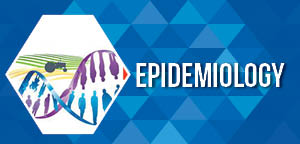
Epidemiology is the course and analysis of the patterns, source and effects of health and epidemic conditions in specified populations. It is the keystone of civic health and shapes management decisions and data-based practice by identifying exposure factors for disorder and mark for precautionary healthcare. Epidemiologist’s assisted with study method, selection, and statistical analysis of evidence; alter interpretation and propagation of results.
Epidemiology has helped evolve technique used in clinical research, civic health course and to a lesser intensity, basic research in the biological system.
- Epidemiology in Nursing
- Epidemiology in Public Health Practice
- Health Care Management
- Clinical and Preventive Practice
- Understanding Disease Process
Epidemiology Conferences | Epidemiology Meetings | EpidemiologyExpo | Epidemiology Events | Epidemiology Programs
Track 8: Geriatrics:
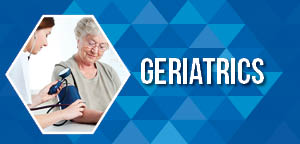
Geriatrics is a study that focuses on health care of aged people. It aims to stimulate health by countering and treating disorders and disabilities in elder adults. Geriatric physician who specialist in the care of older person. It is important to note the difference between geriatrics, the care of aged people, and gerontology, which is the study of the aging process itself. Geriatrics varies from standard adult medicine because it targeted on the particular needs of the aged person. The aged body is various physiologically from the younger developed body and during old age.
- Geriatric Medicine
- Aging & Health
- Caring for Older Adults
- Geriatrician Practice
- Consultant Pharmacist
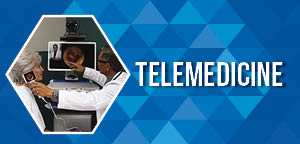
Telemedicine is the study of an information technology and telecommunication to contribute clinical health care from a span. It has been used to taken distance boundaries and to better access to medical assistance that would generally not be frequently available in remote rural communities. It is also used to save lives in critical care and emergency situations. These technologies consent communications between patient and medical agent with both convenience and devotion, as well as the communication of medical, design and health services evidence data from one site to another.
- Analysis of Cost and Time Savings
- Use of Telemedicine
- Glycemic Management
- Usability of Telepresence
- Pediatric Telemedicine Program
Telemedicine Conferences | Telemedicine Meetings | Geriatric Expo | Geriatric Events | Telemedicine Symposium
Track 10: Sports Medicine:
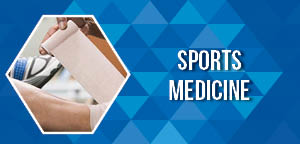
Sports medicine is a study of medicine that deals with physical fitness and the treatment and prevention of fractures related to games and exercise. Games and exercise medicine physicians are specialist doctors who have completed medical school, appropriate residency training and then specialize further in sports medicine. Specialization in sports medicine may be a doctor's first specialty. It may also be a sub-specialty following a specialization such as orthopedic surgery and psychiatry. The various approaches reflect the medical culture in different countries.
- Sports Medicine journal
- Innovations in Sports Medicine
- Ethical Issues in Sports Medicine
- Opportunities in Sports Medicine
- Professionalization Program
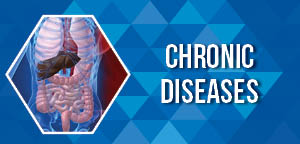
A chronic condition is a human health condition or disorder that is persistent or otherwise long-lasting in its effects or a disease that comes with time. The term chronic is often applied when the course of the disease lasts for more than three months. In medicine, the opposite of chronic is acute. A chronic study is further distinguished from a recurrent course; recurrent diseases relapse continuously, with periods of remission in between. Chronic conditions have often been used to describe the various health related states of the human body such as syndromes, physical impairments, disabilities as well as diseases.
- Chronic Obstructive Pulmonary Disease
- Oral Health
- Chronic Condition Medicine
- Chronic Disease Symptoms
- Chronic Disease Prevention
Chronic Disease Conferences | Chronic Disease Meetings | Chronic Disease Expo | Chronic Disease Events | Chronic Disease Symposium
Track 12: Diagnosis and Case Reports:
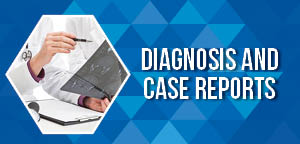
Diagnosis is the process of determining which disease or condition explains a person's symptoms and signs. Diagnosis is often challenging, because many signs and symptoms are nonspecific. Thus differential diagnosis, in which several possible explanations are compared and contrasted, must be performed. This involves the correlation of various pieces of information followed by the recognition and differentiation of patterns. Occasionally the process is made easy by a sign or symptom (or a group of several) that is pathognomonic. The information required for diagnosis is typically collected from a history and physical examination of the person seeking medical care. Often, one or more diagnostic procedures, such as diagnostic tests, are also done during the process. Sometimes Posthumous diagnosis is considered a kind of medical diagnosis.
- Case Reports in Cliniacal Medicine
- Medical Case Report Journal
- Diagnostic Pathology
- Safety Standards in Diagnostic
- Diagnostic Imaging
Diagnosis And Case Reports Conferences | Diagnosis And Case Reports Meetings | Diagnosis And Case Reports Expo | Diagnosis And Case Reports Events | Diagnosis And Case Reports Symposium
Track 13: Internal medicine and Healthcare:
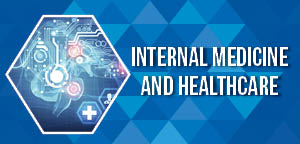
Health care is the maintenance or improvement of health through the diagnosis, treatment, and prevention of disease, illness, injury, and other physical and mental impairments in human beings. Healthcare is delivered by health professionals in allied health professions, chiropractic, physicians, dentistry, physician associates, midwifery and other health professions. It includes the work done in providing primary care, secondary care, and tertiary care, as well as in public health
- General Internists
- Primary Care Physicians
- Internal Medicine
- Subspecialties of Internal Medicine
- Internal Medicine vs Family Practice
Internal Medicine And Healthcare Conferences | Internal Medicine And Healthcare Meetings | Internal Medicine And Healthcare Expo | Internal Medicine And Healthcare Events | Internal Medicine And Healthcare Meets
Track 14: Nephrology:
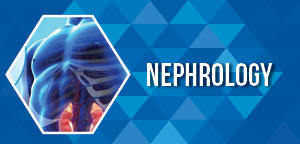
Nephrology is a branch of medicine and pediatrics that concerns itself with the kidneys. It deals with the study of normal kidney function and kidney problems, the preservation of kidney health, and the treatment of kidney problems, from diet and medication to renal replacement therapy. Systemic conditions such as autoimmune disease and diabetes affect the kidneys and systemic problem such has hypertension occurs as a result of kidney problems are studied in nephrology.
The one who concentrates in the care and dealing of kidney disease is a nephrologist. To become an expert with advanced skills a nephrologist requires additional training. They will treat in general/internal medicine, immunosuppression management, clinical pharmacology, perioperative medicine, intensive care medicine, transplant medicine, pediatric nephrology.
Track 15: Oncology:
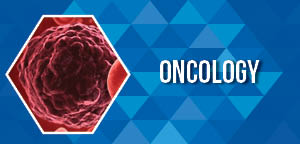
Oncology is a branch of medicine dealing with the prevention, diagnosis and treatment of cancer. The oncologist is a medical professional who practices oncology. There are three components which have improved survival in cancer:
- Prevention - This is by reduction of risk factors like tobacco and alcohol consumption.
- Early diagnosis - Screening of common cancers and comprehensive diagnosis and staging
- Treatment - Multimodality management by discussion in tumor board and treatment in a comprehensive cancer center.
Cancers are managed by attending multi-disciplinary cancer conferences where the surgical oncologist, pathologist, medical oncologist, organ specific oncologists meet to find possible management for individual patient considering the social, emotional, physical, psychological and financial status of patients.
- Medical Oncology
- Surgical Oncology
- Dermatological Oncology
- Nuclear Medicine Oncology
- Veterinary Oncology
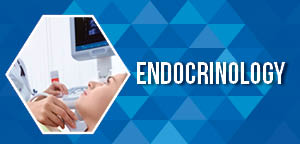
- Hypothalamic disorders
- Gonadal disease
- Pituitary diseases
- Parathyroid abnormalities
- Lipid metabolism
- Iatrogenic effect of glucocorticoids
- Pancreatic endocrine disease
- Thyroid diseases Adrenal cortex dysfunction
- The Lancet Diabetes and Endocrinology
- Diabetes Care
- Trends in Endocrinology and Metabolism
- Diabetes, Obesity and Metabolism
- Reviews in Endocrine and Metabolic Disorders
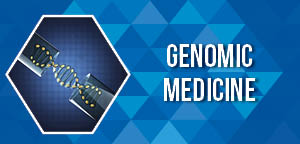
Genomics is the study of genomes, the complete set of DNA within a cell of an organism. More specifically, genomics involves the sequencing and analysis of genomes. Genomics is also concerned with the structure, function, evolution, and mapping of genomes. In contrast to genetics, which refers to the study of individual genes and their roles in inheritance, genomics uses high DNA sequencing and bioinformatics to assemble, and analyze the function and structure of entire genomes. The field also includes studies of intragenomic phenomena such as heterosis , epistasis , pleiotropy and other interactions between loci and alleles within the genome. Advances in genomics have triggered a revolution in systems biology which facilitates the understanding of complex biological systems such as the brain.
- Functional Genomics
- Machine Learning in Genomic Medicine
- Experts in Genomics
- Pharmacogenomics
- Genomic Medicine Activities
Genomic Medicine Conferences | Genomic Medicine Meetings | Genomic Medicine Expo | Genomic Medicine Events | Genomic Medicine Meets
Track 18: Clinical Trials:
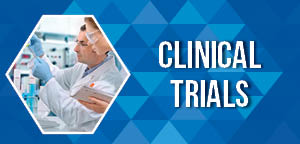
Clinical trials are observations or experiments done in clinical research. It includes biomedical or behavioral research studies on human participants to answer specific questions about treatments such as novel vaccines, drugs, dietary choices, dietary supplements, and medical devices. It generates data on efficacy and safety. Clinical trials are conducted only after they receive approval from the ethics committee in the country. These authorities are responsible for benefit or risk ratio of trial and the approval does not mean the therapy is safe; it is that only the trial may be conducted. The cost of a trial is dependent on a number of factors. The sponsor for clinical trials may be a pharmaceutical company or government organization or medical device company. There are certain functions which are necessary to the trial include lab work and monitoring, managed by central laboratory or contract research organization.
- Participating in a Clinical Trial
- Funding Clinical Trials
- Experts in Genomics
- Human Clinical Trial Phases
- Clinical Trials for Money
Clinical Trials Conferences | Clinical Trials Meetings | Clinical Trials Expo | Clinical Trials Events | Clinical Trials Meets
Track 19: Emergency Medical services:
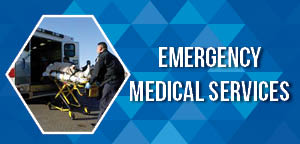
Emergency medical services, known as ambulance services or paramedic services. These are emergency service for providing transport to definitive care, and other medical transport of patients with illness and injuries. Emergency medical services may also be locally known as ambulance corps, life squad, rescue squad, first aid squad. The main goal of most emergency medical services is to arrange for timely removal of the patient to the next point of definitive care, or provide treatment to those in need of urgent medical care. This is an emergency department at the hospital. Emergency medical service change from providing ambulances only for transport, to preliminary medical care which is given during transport. In some regions, the term is not used, or may be used inaccurately, because the service in question does not provide treatment to the patients, but only provides transport to the point of care.
- Ambulance Services
- Paramedic Services
- Traditional healthcare professions
- Pharmaceuticals
- Combined Emergency Service
Emergency Medical Services Conferences | Emergency Medical Services Meetings | Emergency Medical Services Expo | Emergency Medical Services Events | Emergency Medical Services Meets
Track 20: Electronic Medical Record and Disease Management:
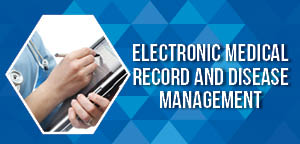
Electronic medical record refers to patient health information in a digital format. Records can be shared through enterprise-wide information systems or other information networks and exchanges. Electronic medical record includes range of data which includes medical history, laboratory test records, vital signs, billing information, radiology images. Electronic medical record systems are designed to store data accurately and to capture the state of a patient across time. Due to the digital information being searchable in a single file, electronic medical records are more effective when extracting medical data for the examination of possible trends and long term changes in a patient. Disease management is defined as health care interventions and communications for populations in which patient self-care efforts are significant.
- Use of electronic medical Records
- Health IT for Improved Chronic Disease Management
- Implementation of Technology Solutions
- Health IT Adoption and Change Management
- Disease Management Health Informatics
Electronic Medical Record And Disease Management Conferences | EElectronic Medical Record And Disease Management Meetings | Electronic Medical Record And Disease Management Expo | Electronic Medical Record And Disease Management Events | Electronic Medical Record And Disease Management Meets
Market Analysis
Italy is a mature market for medical equipment, and its high per capita income and sophisticated healthcare system translate into demand for a broad range of cutting-edge medical equipment. The Italian market for medical equipment and supplies is the fourth largest in Europe following Germany, France and the UK with about 4,480 companies (including 43% distributors, 53% producers and 4% service providers) and a workforce of 68,200. The medical device market (including dental and optical devices) was valued at approximately $8.7 billion in 2015 with imports accounting for $5.8 billion and is expected to grow by 1% in 2017 after a reduction of 0.8% in 2016. Aside from medical devices, consumable products represent the largest market segment (20.6%) followed by diagnostic imaging (16.1%) and patient aids (14.7%). The Italian government is the primary purchaser of medical equipment. Public hospitals account for over 75 percent of medical device sales, with the remaining 25 percent of sales to the private sector. Despite having a considerable local manufacturing industry, the domestic market for medical equipment is highly dependent on imports. Major suppliers include Germany, the Netherlands, Belgium, France, and the United States, which had a 6.5% share of Italian imports, valued at $378 million in 2015. Major U.S. medical device imports to Italy include diagnostic imaging, dental and patient aids.
A significant number of U.S. manufacturers of medical equipment are present in the Italian healthcare market (about 60 companies with 5,700 employees and $2.7 billion domestic revenue). Some U.S. suppliers maintain wholly-owned subsidiaries in Italy and sell equipment imported from the United States or from plants in other foreign countries. There are also a considerable number of U.S. companies represented by local importers and distributors. Since U.S. technology and standards are highly regarded and recognized, we believe that U.S. companies will maintain their excellent market position in the future.
Unit: USD Millions
|
|
2015 |
2016 |
2017 |
2018 |
|
Total Local Production |
6,674 |
6,615 |
6,681 |
6,747 |
|
Total Exports |
3,750 |
3,717 |
3,754 |
3,791 |
|
Total Imports |
5,800 |
5,748 |
5,805 |
5,863 |
|
Imports from the US |
377 |
373 |
390 |
420 |
|
Total Market Size |
8,724 |
8,646 |
8,732 |
8,776 |
Leading Sub-Sectors
Medical Devices
The strongest sales potential for U.S. manufactured medical equipment exists in the following areas: home care equipment, remote monitoring equipment, high frequency medical lasers (for multiple applications), endoscopes and diagnostic imaging equipment non-invasive and micro-surgery devices and equipment, anesthesiology equipment, EKG, stimulators and defibrillators, ophthalmic equipment, monitoring equipment, telemedicine equipment and services. The Italian market is receptive to high quality and technologically advanced diagnostics as well as therapeutic equipment and products.
E-Health
The European e-Health market has an estimated value of $20 billion with an annual growth of 3 percent. Considering that the demand for healthcare products and services will rise significantly in coming years, the information technology applied to the healthcare systems is a key enabler for delivering more effective and efficient health care. In Italy the ICT expenditure in healthcare is estimated at $1.4 billion corresponding to 1.2% of the total healthcare expenditures, which is less than many other developed countries which average 2.5-3%. Following slight growth of the ICT budget in 2014, expenditures in digital health declined in 2015 and the adoption of digital instruments in healthcare remains fragmented.
eHealth Expenditure Trends in Italy (2016-2020)
|
Years |
Healthcare GDP % |
Healthcare expenditures |
eHealth expenditures % |
|
2016 |
6.80 |
112,385 |
1.23 |
|
2017 |
6.70 |
113,786 |
1.26 |
|
2018 |
6.60 |
115,154 |
1.29 |
|
2019 |
6.50 |
117,469 |
1.32 |
|
2020 |
6.37 |
119,214 |
1.36 |
According to data, the Italian eHealth expenditures over the public healthcare expenditures will likely reach 1.36% in 2020. Strategic areas which will see investments over the next three years include electronic health records, cloud computing, administrative management, digital management of drugs, e-Prescription, mobile health and business intelligence and clinical governance.
Requirements
It is up to the Italian national government to issue specific regulations governing the procurement of medical equipment. Recently the healthcare procurement system has been re-organized into 33 procurements centers. Most purchases are made by public tender and are open to both domestic and foreign companies. Announcements of tenders on public procurements are available on the National Procurement Center, CONSIP.
Medical device regulations for EU member states are governed by the following three EU medical device directives: Active Implantable Medical Devices Directive (90/385/EEC), Medical Devices Directive (93/42/EEC) and In Vitro Diagnostic Medical Device Directive (98/79/EEC). All medical devices marketed in the EU must bear the CE mark to certify conformity with EU law. Member States have appointed certification authorities or "notified" bodies to grant these compliance certificates. Proposals for two new regulations intended to replace the three EU medical device directives were published by the European Commission in September 2012 and information on the current approval status of the new regulations can be found on the European Commission website.
Past Conference Report
Internal Medicine 2018 Report
The 7th Edition of International Conference on Internal Medicine and Patient Care was held on March 26-27, 2018 in Vienna, Austria with the presence of professional researchers, scientists involved in the development of high-quality education & research in all aspects.
Internal Medicine 2018 witnessed an amalgamation of peerless speakers who enlightened the crowd with their knowledge and confabulated on various topics related to the field of Internal medicine and Patient care. The highly exalted conference hosted by EuroSciCon was marked with the attendance of renowned and brilliant researchers, business delegates and talented student communities representing more than 20 countries around the world. The conference has tried grounding every aspect related to Internal Medicine and Patient Care, covering all the possible research areas.
The conference aimed a parallel rail with theme “Internal Medicine: A New System for Patient Care”. The meeting engrossed a vicinity of cognizant discussions on Internal Medicine and Patient Care, Primary Care, Intensive Care Medicine, Infectious Diseases, Emergency Medicine, Adult Diseases, Epidemiology, Geriatrics, Telemedicine, Sports Medicine, Chronic Disease, Diagnosis and Case Reports, Internal Medicine and Healthcare, Nephrology, Oncology, Endocrinology, Genomic Medicine, Clinical Trials, Emergency Medical Services, Electronic Medical Record and Disease Management. The two days event implanted a firm relation of upcoming strategies in the field of Internal Medicine with the scientific community. The conceptual and applicable knowledge shared, will also foster organizational collaborations to nurture scientific accelerations.
We are thankful to all our speakers for encouraging and supporting us to conduct the conference and catapulting the same to pinnacle of success.
The Organizing Committee would like to thank the moderator: Duaa Dakhlallah, West Virginia University, USA for her valuable contribution which resulted in smooth functioning of the conference.
We would also like to thank our Poster judge William Rowe, University of Ohio, USA for the evaluation of Poster Presentations.
The meeting was embarked with an opening ceremony followed by Keynote Sessions and followed by series of lectures delivered by Honorable Guests and members of the Keynote forum. The highlights of the meeting were the eponymous lectures, delivered by:
William Rowe, Medical University of Ohio, USA.
Michael S Bronze, University of Oklahoma Health Sciences Center, USA.
Sergey Suchkov, I M Sechenov First Moscow State Medical University, Russia.
Duaa Dakhlallah, West Virginia University, USA.
Reza Nassiri, Michigan State University, USA.
Eman Eladawy, Mansoura University, Egypt.
Veronika Goncharova, Novosibirsk State Medical University, Russia.
Sementeeva Mariia, Novosibirsk State Medical University, Russia.
Tara Swami, University College Cork, Ireland.
Zahra Alibabaei, Masters of Genetic, Iran.
Maria Satya Paramitha, University of Indonesia, Indonesia.
All of them provided their fruitful contributions in the form of highly informative presentations and made the conference a top notch one.
EuroSciCon is prerogative to thank the Organizing Committee Members, Keynote speakers and Chairs on transcribing the plenary sessions and workshop in a diversified and variegate manner to make this conference an enviable artefact.
EuroSciCon offers its heartfelt appreciation to our sponsor “International Journal of Anesthesiology & Pain Medicine”. We also express our sincere thanks to all the media partners for the promotion of our event to glory.
Internal Medicine 2018 would not have reached the pinnacle if not with the support of International, multi-professional steering committee and coordination of the International Journal of Collaborative Research on Internal Medicine & Public Health, Journal of Emergency and Internal Medicine and Clinical Immunology and Infectious Diseases.
With the grand success of Internal Medicine 2018, we are glad to announce our next upcoming conference “8th Edition of International Conference on Internal Medicine and Patient Care” which is going to be held in Rome, Italy during March 25-26, 2019.
Bookmark your dates…
Hoping to meet you again coming year at Rome!!!
Learn More
Top Internal Medicine Universities Worldwide:
Europe Internal Medicine Universities:https://internalmedicine.euroscicon.com/
- Medical University of Vienna
- Medical University of Innsbruck
- Karl Landsteiner University of Health Sciences
- Johannes Kepler University Linz
- Medical University of Graz
- Paracelsus Private Medical University of Salzburg
- Medical University Pleven
- Medical University of Plovdiv
- Medical University of Sofia
- Medical University of Varna
- Medical School University of Cyprus
- Saint George's Medical School in Cyprus
- School of Medicine European University Cyprus
- Aalborg University
- Aarhus University
- University of Copenhagen Faculty of Health and Medical Sciences
- University of Southern Denmark
- Aix-Marseille University
- Albert Ludwig University of Freiburg
- Ruprecht Karl University of Heidelberg
- National University of Ireland, Galway
- University College Dublin
- Universiteit van Amsterdam
- University of Groningen
- Universiteit Maastricht
- I.M. Sechenov First Moscow State Medical University
- St. Petersburg State University
- University of Ljubljana
- University of Maribor
- University of Alcalá
- University of Barcelona
- European University of Madrid
- Euroscicon
- University of Oviedo
- University of Basel
- University of Berne
- Barts and The London School of Medicine and Dentistry
- Brighton and Sussex Medical School
- Bristol Medical School
- Durham University School of Medicine and Health
- Hull York Medical School
- Imperial College School of Medicine
- Keele University School of Medicine
- King's College London School of Medicine and Dentistry
- Lancaster Medical School
- Euroscicon
- Leeds School of Medicine
- Leicester Medical School
- Liverpool Medical School
- Manchester Medical School
- Medical Sciences Division, University of Oxford
- Euroscicon
- Newcastle University Medical School
- Norwich Medical School at The University of East Anglia
- Peninsula College of Medicine and Dentistry
- St George's, University of London
- School of Clinical Medicine, University of Cambridge
- Sheffield Medical School
- Southampton Medical School
- UCL Medical School
- Euroscicon Conferences
- University of Birmingham Medical School
- University of Nottingham Medical School
- Warwick Medical School
USA Internal Medicine Universities:
- Georgetown University School of Medicine
- George Washington University Medical School
- University of Connecticut School of Medicine
- California Northstate University College of Medicine
- University of South Alabama College of Medicine
- University of Alabama School of Medicine
- Charles R. Drew University of Medicine and Science
- University of California, Irvine School of Medicine
- Euroscicon Conferences
- UCSF School of Medicine
- University of Colorado School of Medicine
- University of Central Florida College of Medicine
- University of South Florida College of Medicine
- Morehouse School of Medicine
- Michigan Medicine
- University of Virginia
- Northwestern University
- University of Rochester
- Euroscicon
- The University of Arizona Health Sciences
- University of Chicago
- Standford University
- Indiana University
- Southern Illinois University School of Medicine
- Duke University School of Medicine
- Harvard Medical School
- Johns Hopkins School of Medicine
- Emory University School of Medicine
- Yale School of Medicine
- Euroscicon Conferences
- Baylor College of Medicine
- Washington University School of Medicine
- Mayo Clinic College of Medicine
- Wayne State University School of Medicine
- University of Massachusetts Medical School
- University of Maryland School of Medicine
- Johns Hopkins University School of Medicine
- University of Kansas School of Medicine
- Rush Medical College
- Euroscicon
- Loyola University Chicago Stritch School of Medicine
- Medical College of Georgiaat Augusta University
- Florida State University College of Medicine
- Howard University College of Medicine
Asia Internal Medicine Universities:
- Tra Vinh University
- Vietnam National University, Hanoi
- Vinh Medical University
- Aino University
- Baika Womens University
- Morinomiya University of Medical Sciences
- Kansai University
- Euroscicon Conferences
- Osaka University
- Kindai University
- Tokyo University
- Tambov State University
- Tver State Medical Academy
- All India Institute of Medical Sciences
- Army College of Medical Sciences
- University College of Medical Sciences
- Beijing University of Chinese Medicine
- Euroscicon
- Capital Medical University
- Peking Union Medical College
- Guangdong Medical University
- Hainan Medical College Harbin Medical University
- International University - Cambodia (IU)
- Euroscicon Conferences
- University of Health Sciences - Cambodia (UHS-C)
- University of Puthisastra (UP)
- Akaki Tsereteli State University
- David Agmashenebeli University of Georgia
- Tbilisi State Medical University
- Hashemite University
- Jordan University of Science and Technology
- Mutah University
- Euroscicon
- University of Jordan
- Nanyang Technological University
- National University of Singapore
- Mordovian Ogarev State University
- Moscow Medical Stomatology Institute
- Omsk State Medical Academy
Europe Internal Medicine Societies:
- Academy of Allergology Clinical Immunology
- Academy of Dermatology & Venereology
- Association of Senior Hospital Physicians
- Board of Cardiovascular Perfusion
- British Association of Dermatologists
- Drug Information Association
- Euroscicon
- European Association for Cardio-Thoracic
- European Association of Neurosurgical Societies
- European Association of Plastic Surgeons
- European Association of Radiology
- European Board for Accreditation in Cardiology
- European Data in Health Research Alliance
- European Dermatology Forum
- Euroscicon Conferences
- European Federation of Allergy
- European Federation of Salaried Doctors
- European Society for Medical Oncology
- European Society of Cardiology
- European Society of Clinical Microbiology
- The European Section and Board of Gastroenterology and Hepatology
- European Association for the Study of the Liver
- World Gastroenterology Organization
- European Liver Patients Association
- Albanian Association of Gastroenterology & Hepatology
- Austrian Society of Gastroenterology & Hepatology
- Byelorussian Gastroenterology Association
- Royal Belgian Society of Gastroenterology
- Flemish Association for Gastroenterology (VVGE)
USA Internal Medicine Societies:
- American Association for Cancer Research
- American Board of Medical Specialties
- Aerospace Medical Association
- American Association of Clinical Endocrinologists
- American Board of Emergency Medicine
- American Board of Family Medicine
- American Board of Hospital Medicine
- American Board of Internal Medicine
- American Board of Legal Medicine
- American Board of Nuclear Medicine
- American Board of Ophthalmology
- Euroscicon
- American Board of Pain Medicine
- American Board of Pediatrics
- American Board of Physical Medicine and Rehabilitation
- American Board of Physician Specialties
- American Board of Preventive Medicine
- Los Angeles County Medical Association
- Medical Association of Georgia
- Euroscicon Conferences
- American Association for the Study of Liver Diseases (AASLD)
- North American Society for Pediatric Gastroenterology, Hepatology and Nutrition
- Gastroenterology & Hepatology Associates
- American College of gastroenterology
- American Gastroenterological Association
- American Society for Gastrointestinal Endoscopy
Asia Internal Medicine Societies:
- Australasian College for Emergency Medicine
- Australian Medical Association
- Australian and New Zealand College of Anaesthetists
- Doctors Reform Society of Australia
- National Prescribing Service
- Royal Australasian College of Physicians
- Euroscicon
- Royal Australasian College of Surgeons
- Royal Australian and New Zealand College of Radiologists
- Royal Australian College of General Practitioners
- Royal Australian and New Zealand College of Psychiatrists
- Royal Australian and New Zealand College of Obstetricians and Gynaecologists
- Royal Australian and New Zealand College of Ophthalmologists
- Euroscicon Conferences
- Royal Australian and New Zealand College of Radiologists
- Royal College of Pathologists of Australasia
- Indian Orthopaedic Association
- Ibn Sina Academy of Medieval Medicine and Sciences
- Indian Academy of Pediatrics
- Academy of Family Physicians of India
Europe Internal Medicine Conferences:
- 7th Edition of International Conference on Family Medicine & Primary Care Paris, France
- 9th Edition of International Conference on Alternative Medicine London, UK
- 2nd Edition of International Congress on Pediatrics Edinburgh, Scotland
- 8th Edition of International Conference on CASE REPORTS London, UK
- 8th Edition of International Conference on Hepatology Vienna, Austria
- 6th Edition of International Conference on Infectious Diseases London, UK
USA Internal Medicine Conferences:
- 5th International Conference on Pain Management and Pain Medicine New York, USA
- 16th Annual Dialysis & Renal Medicine Conference Baltimore, Maryland, USA
- International Conference on Applied Psychology and Behavioral Medicine Toronto, Ontario, Canada
- 30th International Conference & Exhibition on Dental Medicine & Dental Implants Atlanta, USA
- International Conference on Oncogenesis and Oncologic Emergency Medicine San Diego, USA
- 3rd International Conference on Internal Medicine and Hospital Medicine Toronto, Ontario, Canada
- 9th International Conference on Predictive, Preventive and Personalized Medicine & Molecular Diagnostics Boston, USA
Asia Pacific & Middle East Internal Medicine Conferences:
- International Conference on Internal Medicine Osaka, Japan
- 4th Global Summit on Herbals and Traditional Medicine Osaka, Japan
- 11th World Congress on Orthopedics, Rheumatology & Sports Medicine Sydney, Australia
- 11th World Congress on Rheumatology, Orthopedics & Sports Medicine Sydney, Australia
- 9th International Conference on Tissue Science and Regenerative Medicine Sydney, Australia
- 7th International Conference on Telemedicine & Medical Informatics Melbourne, Australia
Top Pharma companies in Europe:
- Mylan
- Astellas Pharma
- Novo Nordisk
- Boehringer Ingelheim
- Allergan
- Takeda
- Bristol-Myers Squibb
- Eli Lilly
- Teva Pharmaceutical Industries
- Amgen
- AbbVie
- AstraZeneca
- GlaxoSmithKline (GSK)
- Gilead Sciences
- Merck
- Sanofi
- Roche
- Pfizer
- Novartis
- Bayer
- Johnson and Johnson
- Angelini
- Pfizer
- Recordati
- Apharm
- Pfizer
- Dipharma
- CellPly
- Newron Pharmaceuticals
- Zambon
- Charles River Laboratories
- Procus
- AbbVie
- Adienne Pharma and Biotech
- CordenPharma
- VitalMED
- Dipharma
- Silicon Biosystems
- Flamma
- Diatheva
- Menarini
- Patheon
- SI-BONE
- Bayer
- Baxter
- Flamma
- Diatech Pharmacogenetics
- Dante Labs
- Dompé
- Menarini
- Aenova
- CordenPharma
- Dipharma
- Axxam
- Chemi Peptides
- Famar
- Molecular Medicine
- NicOx
- Norgine
- Patheon
- Recordati
- Roche
- Cassiope
Top Healthcare companies in Asia:
- eClinicalWorks
- Simplicity Health Systems
- RxNT
- Eating Recovery Center
- NaphCare, Inc
- Accreditation Commission for Health Care (ACHC)
- Crescendo
- Alignment Healthcare
- Black Book Research
Related Medical conferences to attend in 2019:
- International Conference on Health & Primary Care
- Occupational Health and Public Safety
- Endocrinology & Diabetology
- Digital Pathology
- Pathology & Cancer Epidemiology
- Histopathology & Cytopathology
- Clinical & Medical Case Reports
Top Pharmaceutical companied in UAE:
- Al Hayat Pharmaceuticals Company
- Modern Pharmaceutical Company Store
- IDS - Al Ittihad Drug Store
- MPC
- Boehringer Ingelheim
- Novo Nordisk Pharma Gulf Fz Llc
- Dayarn Pharma
- LIFEPharma
- Globalpharma
- Modern Pharmaceutical Co
- Pharma Service Company
- Medpharma
- Medicina Pharmacy - Al Zaab
- MEDA Pharmaceuticals
- Julphar Pharmaceuticals
- Pharmalink
- Medisal Pharmaceuticals Industry L.L.C
- NewBridge Pharmaceuticals Scientific Office
- Julphar - Gulf Pharmaceutical Industries
- Abu Dhabi International Medical Services (ADI)
- Johnson & Johnson
- Pfizer
- Merck & Co
- Gilead Sciences
- AbbVie Inc.
- Amgen
- Bristol-Myers Squibb Company
- Eli Lilly & Co.
- Allergan
- Biogen Inc.
- Celgene Corporation
- Valeant Pharmaceuticals International, Inc.,
